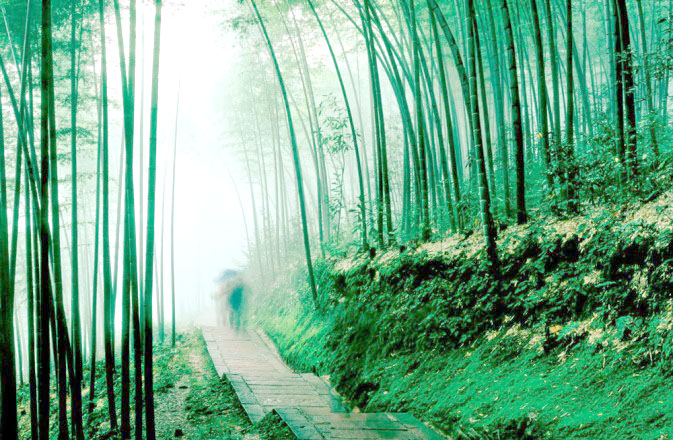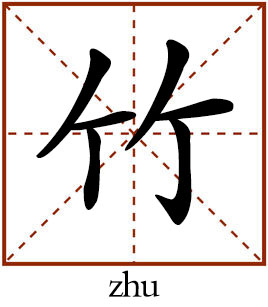The birthday of bamboo: May 13, Lunar Calendar

A bamboo forest in Yibin, Sichuan Province

Zhu (bamboo), a member of the “four gentlemen flowers,” represents many good virtues that a gentleman pursues in Chinese culture, including perseverance, integrity, uprightness and strong will.
I have kept a pot of bamboo in my study for about 18 years. Friends visiting me complimented me on these gorgeous strands of bamboo. I shared with them my secret for growing bamboo—sunshine, water and fertilizer.
This pot of bamboo was sent to me by Mr. Yan Shaoxiang, a famous painter. He told me to divide the bamboo stalks and change the soil every three years on May 13, according to the lunar calendar.
Later, I came to realize the reason he emphasized the specific day for doing all this work—May 13 is the “birthday” of bamboo on the lunar calendar. According to the Manual of Bamboo Shoots by Zan Ning (919-1001), an eminent monk in the Song Dynasty, the belief that lunar May 13 was the “birthday” of bamboo was popular among the people. This day is a good choice for planting or transplanting bamboo.
Why was lunar May 13 chosen as the birthday of bamboo? First of all, bamboo is traditionally associated with elegance and nobility. Thus, it would be appropriate for it to have a particularly respected day.
According to legend, lunar May 13 is the birthday of several great figures, including Fu Xi, one of the legendary ancestors of the Chinese people; Guan Yu, the Saint of War; and the Buddha Sakyamuni.
In addition, according to the Records of Social Customs in Yueyang by Fan Zhiming in the Northern Song Dynasty, this day was also considered the birthday of dragons. Dragons in Chinese culture control rainfall in all regions. They were particularly generous on their birthdays. Hence, an old saying goes that “A drought stops before lunar May 13” and rain is generally expected on this day.
A rainy day is favorable for the spreading of bamboo roots underneath the earth. Bamboo, which favors moist conditions, gets intoxicated on this day. Therefore, a book on agriculture in the Han Dynasty called May 13 “the Day when bamboo gets intoxicated.” As a result, May 13 is also called “Bamboo Day” or “Day for the Bamboo God.”
Later, the ancient Bamboo Birthday also spread to Japan. Matsuo Basho (1644-1694), the most famous poet of the Edo period in Japan, wrote that May 13th was both the birthday of bamboo and the Festival of Rain. Even if it may not rain on that day, Matsuo Basho still put on straw rain cape and a bamboo rain hat to celebrate the birthday of bamboo.
However, I am wondering if people today still remember this tradition. The Festival of Bamboo Shoots is celebrated in some areas, but this is more for economic purposes. The Bamboo Birthday may be of greater cultural significance.
Lu You in the Southern Song Dynasty once wrote that “(I am) frequently reading books on tree-planting and reading the Important Arts for the People’s Welfare. I have asked about the Bamboo-intoxicated Day; I have asked about the time when the willows sleep.” He advised those who took even tree-planting as a career to read books just as Fan Chi, one of the 72 prominent students of Confucius, did in pursuing knowledge about agricultural matters.
To this day, most areas still plant bamboo around the Bamboo Birthday, demonstrating the scientific relationship between rainfall and bamboo growth that ancient Chinese observed in years of practice.
